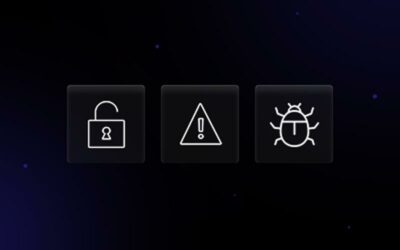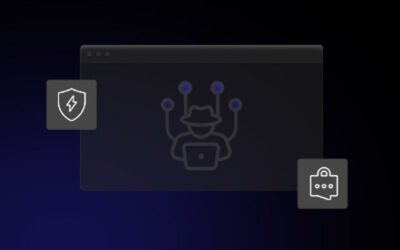As a parent, how can you defend your kids against the criminals that are waiting for cyberspace users? This guide provides you simple tips to help you keep your kids safe online.
Children of all ages tap into cyberspace each day, be it for school study, playing games, or connecting with friends. While this is a common practice for young people today, it generates another degree of concern for parents. There are many real risks when browsing the web and, without proper education, kids are easily trapped.
Each child should be taught online how to be safe. There are technical issues in the modern digital age that also present cyber threats of several kinds. The online world can be an unsuitable environment where children can feel anonymous. There are bullies, hackers, criminals, and scammers who can threaten your kids. These factors will make it difficult for parents to direct their children around technology.
Providing advice on cybersecurity and privacy to protect your kids starts by discussing it and promoting safe and intelligent online activities. Explore some principles and tips to ensure that everyone is safe online, whatever their age!
WHAT ARE THE RISKS IN CYBERSPACE?
The online world has many cyber threats and recognizes events for children. Many of the cyber threats are as follows:
Cyberbullying
Cyberbullying is online bullying that can be done in an email, an online game, an application, a text message, or a social networking site. It may include an individual being intimidated, harassed, deceived, humiliated, and even directly impersonated. Because it is held online, it is not limited to schools or social events. Due to the presence of the internet, cyberbullying will pursue victims throughout life.
The problem of cyberstalking is also commonly involved. Although it might be adorable or fun to learn more about a new friend or possible partner on Facebook, cyberstalking is a severe problem in a cyberbullying environment. It is a critical aspect that connects it to cybersecurity.
Theft
Theft is when a scam artist sends a text, emails, or pop-up messages in a browser to get people to share their personal data. This knowledge can then be used to commit identity fraud.
Sexting
Sexting is the sending, sharing, or receiving from a cell phone of sexually explicit images, videos, or messages. It may be an illegal activity if your child is underage and can cause them to lose their reputation, security, and friendships.
Social networking
Social networking can allow kids to communicate with friends and family, but it can invite danger if not properly used. So much information can be shared, such as images, videos, or words, that can destroy credibility, hurt others, or call a predator to contact the user. Once anything is online, it can’t be deleted easily. Online criminals can use your kid’s over-sharing behavior to promote identity theft.
PARENTS’ ROLE TOWARDS CYBERSECURITY
Teaching kids about cybersecurity regularly can be the best way to protect them from cyber risks because the internet is constantly changing and full of possible security hazards. As a parent, you have to keep your kids away from many traps waiting in cyberspace. Keep up-to-date with basic practices of cybersecurity that can improve your site safety. And as your kids grow old and become web experts themselves, they can teach you the latest in cybersecurity.
Help promote your kid’s moderate internet use by limiting their access to it. Limit screen time and internet access to particular hours such as the weekend or after their homework. It will help instill your kid’s good behaviors when it comes to technology. Be a good model of this behavior, as kids learn well from observation.
With kids spending more time online than ever, parents should expect attacks that threaten kids to increase dramatically. Children are vulnerable to cyberbullying, inadequate content access, and online predators. Here are some useful tips parents can use to enhance security when kids browse the internet.
Teach early about cybersecurity
While it is easy for kids to see the advantages of the internet, they must be taught about phishing, malware, and even online contact etiquette. While their teachers can examine some aspects of internet security measures, you can help your kids by teaching a few lessons on cybersecurity at home. When your kids are young and only using the internet with your support or guidance, these are excellent times for the cybersecurity talks to start, including identifying secure sites, building secure passwords, and other web browsing security principles.
If you see something dangerous, inform them
Advise your kids to alert an adult if they see anything dangerous happening. If you notice something unusual or potentially dangerous happening on the internet or any website you visit, do inform your kids. It will allow you to see the possible problem and help your children avoid falling into traps. It can also tell you that your site security settings need to be higher.
Watch out for scams
As your kids get older, they can learn how to buy good deals and spot apparent scams. The same is true for the internet but not just for shopping. Talk to your kids about phishing details, safe checkouts when making online transactions, and other possible online scams.
Careful with strangers
You tell your children to be aware of strangers in the real world, as well as of outsiders in cyberspace. Tell your kids not to stay in touch with strangers online, accept stuff from strangers, or expect to meet an unknown person they met online in real life. You must teach them not to click links or file attachments sent by strangers, nor to respond to login credentials messages.
Be mindful of your words and actions
In real life, you teach your kids to be aware of what they say and not hurt someone else’s feelings or injure themselves. The internet is not always so forgiving. Explain to your children that it will stay forever in cyberspace without the chance to take it down if you post something online. It might also come back to haunt you when you seek a job or apply to college.
Restrict access to risky sites
If your kids browse the web under your close guidance, you will see what they see right there. Set up parameters around accessing those websites that you think are unsafe or dangerous for your kids if you can’t be there. You can do this with several popular internet browsers. Even Google has a SafeSearch feature that makes internet browsing more kid-friendly.
Update security software
If you receive a request to upgrade your kid’s computer or program, make sure that it is first, not a phishing scam. And once you have revised updates, make sure that you have the new updates as soon as possible. These updates also include essential patches for protection.
Updating security software will protect your kids from scammers, hackers, and other online threats which could jeopardize your computer system. Not only that, it could harm the financial security of your family and additional private information. The use of security software that updates automatically keeps the technology updated and reduces the risk of malware or malware collection.
Create unique passwords
Tell your kids to use unique passwords for each online account for online protection that they need to prevent others from accessing their personal information. Make sure your children track each account, and that good passwords contain elements like symbols, numbers, uppercase, and lowercase letters.
Cover all webcams when not in use
With a few Google searches tweaks, anyone can find and access unsecured webcams, including cams in people’s houses. Hackers and criminals can easily access your cams and your house. Ensure that your children and everyone else in the home can cover their webcams when they are not in use. If you don’t have a privacy cover for your webcam, use a sticky note or a masking band piece.
Use parental control
Parental controls and privacy controls help keep your child safe from cyberbullying and online predators by setting the limits around which your child can access the sites. The amount of information they can post online and how long they can spend off-school online. Don’t just set up the settings; demonstrate to your children its importance. It is an excellent opportunity to participate in a wider debate on online security.
Listen to your kids
Becoming friends with your kids is a good way to get closer to their online world. Share your positive or poor life encounters with them so that nothing can be hidden from you. Pretend you don’t know anything about the internet and begin to speak to them. It can be the best way to understand what they do online or what they think is innocent.
Set time limits for internet usage
Limit internet usage for your kids. Remember, you are responsible parents, and you should worry about the time your child spends online. If he/she stays up all night surfing or talking, it is time to use this practice.
Install antivirus
Children are curious and drawn to new things quickly. They have access to malicious websites and links from untrusted businesses, whether they be a new game, software, or other apps. Video games can be downloaded from unknown places by children. To secure your device from malware or viruses, you should install good antivirus software from a reputable company on your children’s systems.
FAQ
What can parents do to keep their kids safe online?
Consider providing a shared space for the family to do online activities where children can feel independent but not alone. Tell kids to avoid or block bullying before it becomes dangerous. Let your kids know that they can freely come to you with questions or concerns about their online experience.
How can parents protect their kid’s computers?
Consider downloading parental controls and antivirus software. Keep all the computer’s security up-to-date with the new security and malware updates. Change default system settings and allow security features such as strong passwords, auto-updates, etc.
CONCLUSION
The internet is a perfect platform for finding and gaining knowledge about anything. It can be a fruitful space for everyone, for children and adults. But its abuse can also threaten your personal and online lives.
Parents should know what their children are seeing and hearing online, who they meet, to whom they speak, and what details they exchange. The first thing you can do is warn them about cyber threats. Talk to them nicely and ensure that you have created a welcoming space to share their problems freely.
However, sometimes things can go out of hand. In such situations, use various monitoring software to protect your kids and, if necessary, keep an eye on their online activities. Applying these tips will ensure the safety of your kids at home when they surf the internet.



